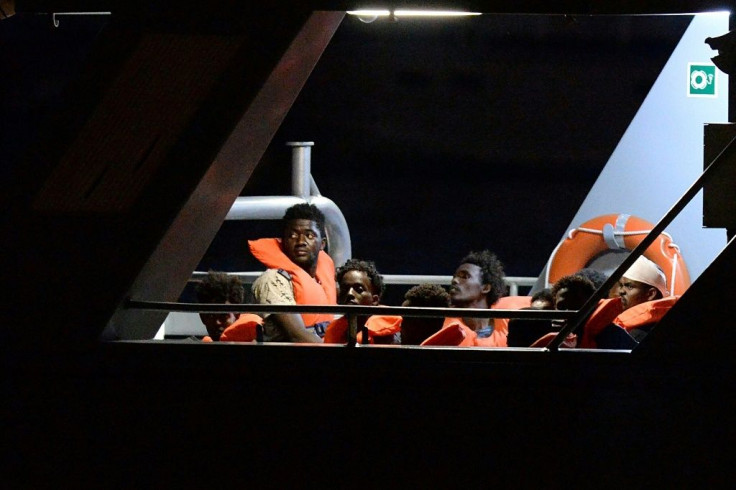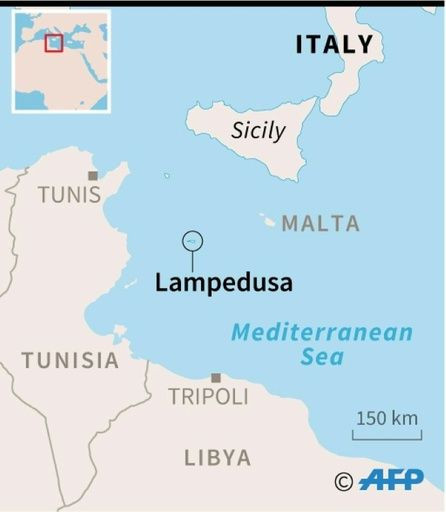Migrant-relocation Scheme Gets Tepid EU Reception

A bid to broaden a "pilot" migrant-relocation scheme across the European Union met with a tepid response Monday, auguring badly for stalled plans to reform the bloc's crumbling asylum policy.
EU interior ministers discussed the relocation scheme hatched two weeks ago by four countries -- France, Germany, Italy and Malta -- but in the end only three other member states gave their support: Luxembourg, Ireland, and Portugal.
The plan, called the Malta declaration, calls for participants to voluntarily take in a share of asylum-seekers rescued from overcrowded boats in the Mediterranean after pushing off from North Africa. The scheme is temporary, to last six months.
Tuesday's EU meeting in Luxembourg came a day after another tragedy along that route, in which 13 migrant women, some pregnant, drowned when their craft carrying around 50 people capsized.
Despite ministers' agreement that more needed to be done, most EU states said they were already struggling to cope with the wake of a 2015 migrant crisis, when more than a million mostly Syrian refugees flowed into Europe.
Resurgent problem for Greece
Although the migrant numbers have greatly fallen since then, because of controversial EU deals done with Turkey and Libya, they are starting to rise once more on a more eastern route, from Turkey in Greece.
"The situation in Greece is really comparable in the islands to what happened in 2015," Luxembourg's foreign minister, Jean Asselborn, told journalists.
On the Malta declaration, he said "things didn't move fundamentally" in terms of just three more countries signing on, he said.
A much bigger number -- over a dozen, he said -- would have suggested an appetite for the scheme to form the basis of a permanent asylum policy for the entire EU.
Instead it indicates a continued deadlock in efforts to replace the current system, which requires countries on Europe's southern rim, mainly Italy, Greece and Spain, to host arriving migrants while their asylum requests are looked at.

But the EU's commissioner for migration, Dimitris Avramopoulos, stressed the meeting was only an initial step and "more discussions were needed".
Another meeting at a technical level would take place in Brussels on Friday, he said.
He noted the "huge pressure" Greece was once again under in terms of arriving asylum seekers, and said the incoming European Commission, which starts work next month, would make finding a comprehensive refugee policy a priority.
Concern at 'pull' factor
Since 2016, at least 19,000 migrants have drowned or gone missing while making the perilous Mediterranean crossing, often in unseaworthy vessels, according to the UN's International Organisation for Migration.
Yet some EU states are wary that the Malta declaration could act as a "pull" factor, encouraging more boat crossings.
"Saving human lives does not mean that we implement a distribution mechanism," Austrian Interior Minister Wolfgang Peschorn told reporters.
Even Germany, one of the originators of the Malta declaration, was prudent.
"If this solution ends up being abused, so that hundreds (of asylum-seekers) become thousands, then tomorrow I can say that the emergency mechanism is finished," German Interior Minister Host Seehofer said.
France, in contrast, talked up likely support for the scheme, with its minister for European Affairs, Amelie de Montchalin, speaking of "around 10 countries" backing it to varying degrees.
"We have been able to enlarge the circle of countries ready to support us and support rapid relocations if there are more boat arrivals," she said.
© Copyright AFP {{Year}}. All rights reserved.





















